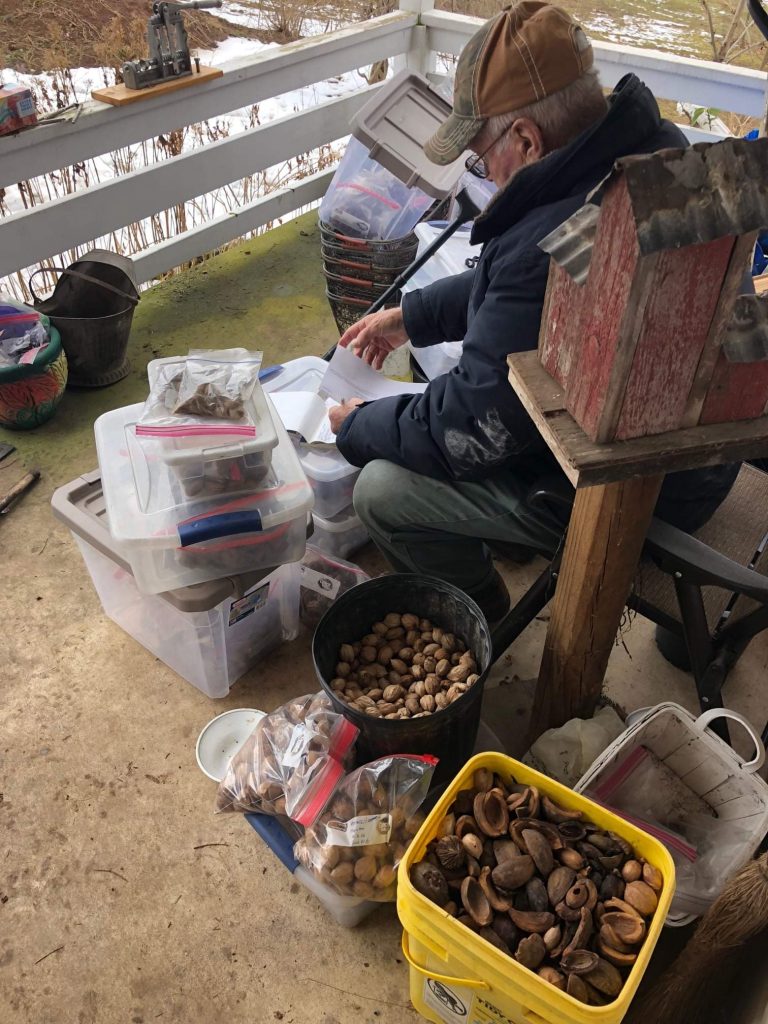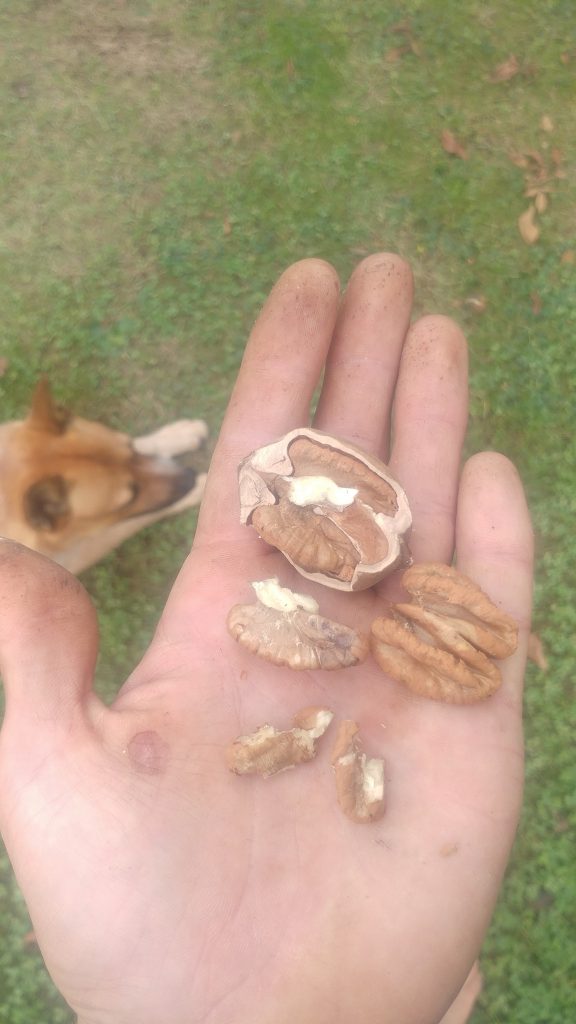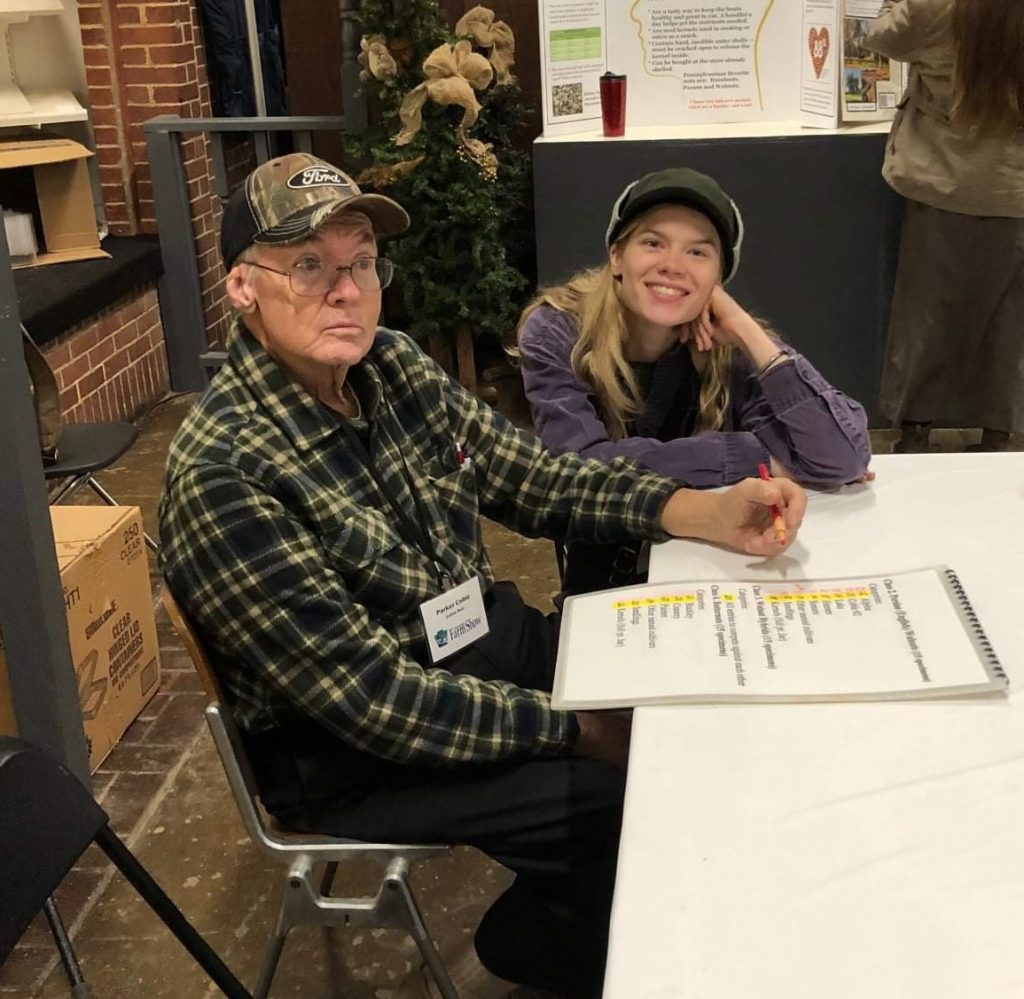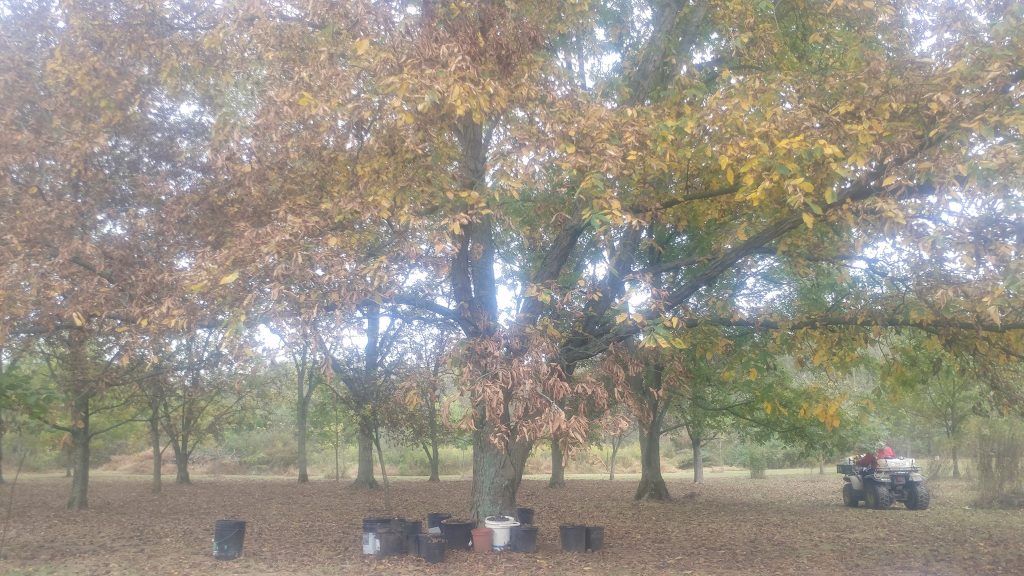
One of my elders in the nut growing community was a man named Parker Coble of Gettysburg. Over the course of his life he had accomplished many things: he was a track and field runner, a teacher, school administrator, football coach, father, husband, bow-hunter, and orchardist. In the years that I knew him he had been battling cancer, and I often found him riding around in his ATV picking up the nuts in his orchard one by one with a reacher tool. His spirits were bright – he was undaunted and courageous, in the sense of the original etymology of the word. From the Latin cor – “heart.” He had a lot of heart for sure. I know he especially loved sharing with younger folks such as those of my generation. He was always spinning yarns. About that elk in Montana. About the times he testified before Congress. The way the surgeons grafted his arteries like he would graft a nut tree. When he used to talk with Ike Eisenhower. The way he would run back and forth to school for miles before the days of busing. Picking American chestnuts as a kid. Securing a grant to start the English as a Second Language program in Adams county. The day Mr. Rogers came to profile him and his nut trees.
Parker grew over 250 grafted nut cultivars. Each was special in its own right, and each had a story. But one I remember especially is the story of Keystone. Keystone is a shellbark hickory found by Fayette Etter of Franklin county, Pennsylvania in the 1950s. A telephone lineman by trade, Fayette was able to explore farms all over his region looking for the best of the best of the wild hickory trees. He had 10 acres of good ground to grow on and there he carried out his experiments. Fayette Etter has been called “the Luther Burbank of nut trees.”
The original Keystone tree grew right up along the banks of the Conococheague Creek. In the late ‘50s or the early ‘60s – I never knew a precise date – the Township decided to widen the road and replace the old beam bridge across the creek. The plans called for the Keystone tree to be cut down to make room. When Fayette heard this news, he couldn’t bear to let it happen. Preparing for the worst but hoping for the best, he cut lots of scion wood from the original Keystone tree, so that through grafting, clones could be made. Fayette and Parker’s dad Garnet were friends, and so Fayette sent him some of the scion wood to graft.
Efforts were made to influence decision-making and spare the Keystone tree the ax. Eventually, a lawyer was hired. In the courtroom Fayette gave the judge some of the nuts from the tree, and let him crack them for himself. “These are the finest nuts I’ve ever seen!” the judge declared, and with that he rested the case. The judge gave an order to modify the plans. The new bridge was re-routed downstream a little ways, allowing Keystone a reprieve.
The following year, after the new bridge was completed, a large storm came through and led to massive flooding. The flooding took out the Keystone tree – and the new bridge, too. Life has a funny sense of justice.
Fayette Etter was crippled with arthritis when he died in 1963. Yet, the Keystone tree lived on. Some of the scion wood Parker’s dad Garnet received was grafted successfully, and Garnet gave his son Parker the first clone of Keystone to plant out on the property he bought in 1965. Had it not been for the threat of getting cut down, perhaps Keystone would have never been preserved.
The autumn before Parker died my friend Buzz Ferver and I took him for a field trip to visit the remains of Fayette’s 10 acre farm. It was the first time Parker had been there since he was a boy learning how to graft. It was a very special trip filled with stories and nostalgia. I think of our elders like I think of old nut trees. No one lives forever. But if you’re lucky, and the fates align, a good graft will take, and memories and characters live on a little longer.
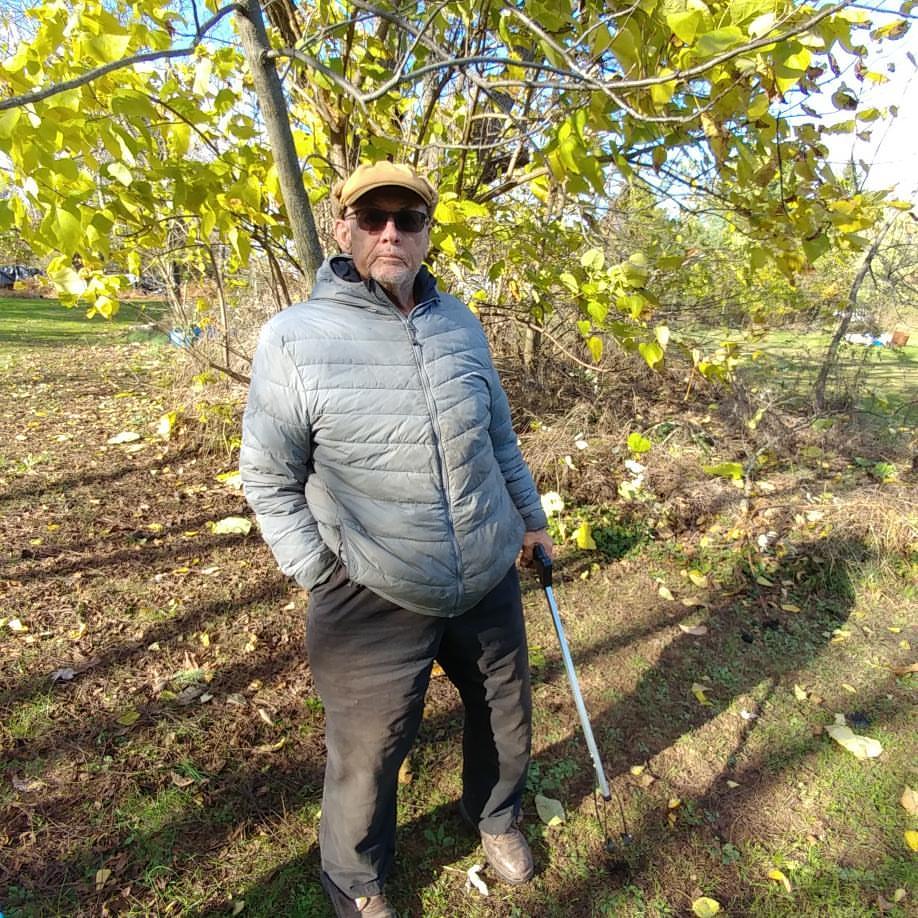
Some more information about Parker:
In 2019, Costa Boutsikaris captured Parker on film with Episode 28 “Hickory Nut Growers” of the Woodlanders series:
Educator Turns Expertise to Edible Nuts (Lancaster Farming)
Parker C. Coble: November 15th, 1939 – November 20, 2020 (Tribute Archive)
